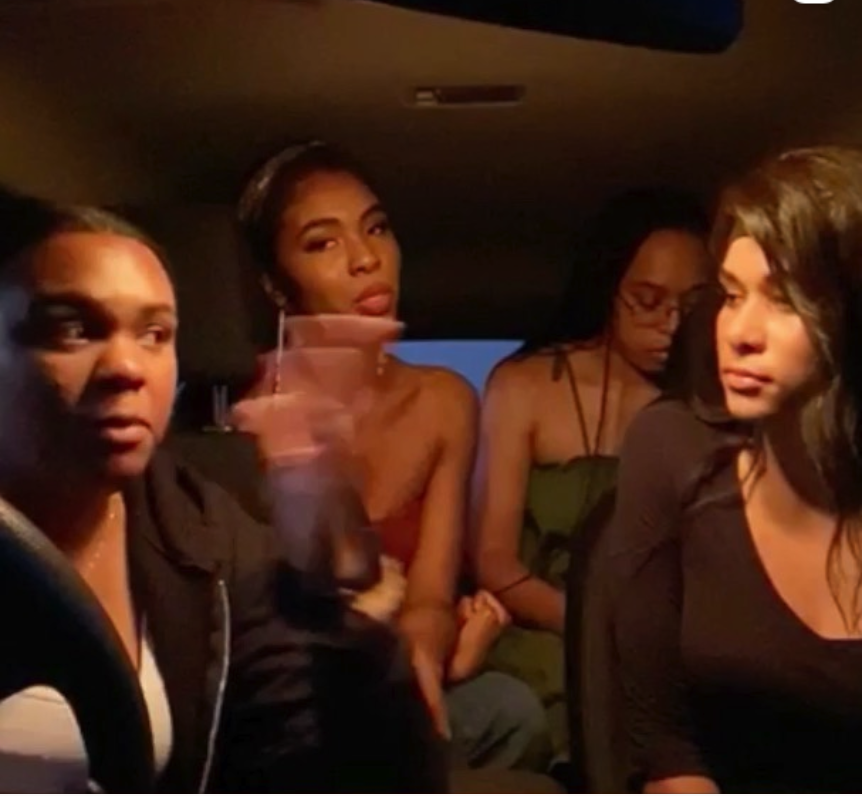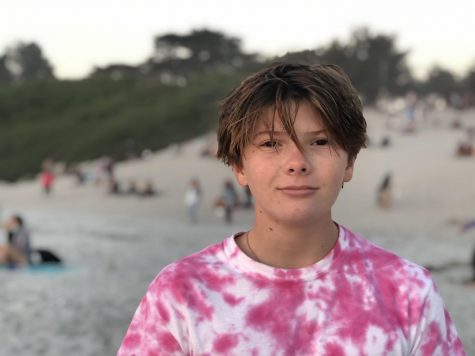Alumni’s Video Series “Dear Black Men” Centers the Perspective of Black Women
O’Dowd Alumni have created an Instagram series called “Dear Black Men,” centered around the perspective of Black women in Oakland.
October 7, 2020
The death of Breonna Taylor became public amongst the rapidly growing Black Lives Matter movement, causing protests and youth around the country to use any platform they can to voice their opinions and promote the BLM message. Among these youth, using their platform to invoke change are O’Dowd alumni Mari Dumas ‘19, Brooke Johnson ‘19, Kelly Clark ‘19, and Aisha McMahon ‘19. They have created a new podcast-like series, called “Dear Black Men” on Instagram. This series addresses many issues from Black women’s perspectives and provides an open dialogue with race-related topics in the Black community of O’Dowd and Oakland. One of the hosts of this series, Brooke Johnson, is also selling her artwork, and the proceeds go to Black Lives Matter organizations. She describes,
“Our videos are a [look into] our experiences as black women with black men and how they treated us in a general perspective. It involves different aspects like colorism and internalized racism.”
These four alums created this series to create a safe space to talk about pressing issues regarding race. They explained how they were not the only ones who experience anti-blackness and sexism, and wanted to show other black people, specifically black women, that they are not alone.
Along with the desire to share their experiences, they created this podcast after noticing a shocking double standard within racism. Black women face an intersection of racism and sexism, while black men do not. Aisha McMahon explains,
“We had been upset for weeks and didn’t have a way to talk about it. When Breonna Taylor and her murder were announced, we felt that there was something so important that no one talked about because we always see that black women are mistreated.”
It is an issue of disparities within the Black community, as Black women are often left behind in the news cycle.
Aisha McMahon further details, “Everybody was focused primarily on George Floyd, but this other person who was a law enforcement member who was one of our community protectors is not being talked about simply because she is a black woman… this Black Lives Matter movement is about all black lives, and they only ever seem to talk about black men…”
Mari Dumas uses her platform to promote a message of progress. She is very active on her social media and uses it to spread awareness of the BLM movement. In her series, they recognize social media influencers’ hypocrisy using the BLM movement for personal gain. They explain how influencers and Instagram users will promote the Black Lives Matter movement, while not acting on it or supporting black people previous to the movement. They used the term “performative activism” to describe this and explained how many people before the growth in popularity of the BLM movement had a history of racist actions, thus promoting the message for the wrong reasons.
“With some white people they are like, oh blackout Tuesday and post stuff on their Instagram, but I know when it comes down to it, they don’t care about my life,” Mari Dumas points out.
Along with this, they explain how the media will portray women of color in a different light than white women. One example is how white women in the press are explicitly called white women, but black women are depicted as black females. They describe this as being dehumanizing, as it employs the same language used to describe animals. It goes deeper than simple miswording, as Black people were treated as subhuman with names, such as “buck”, throughout the history of slavery.
They also discuss the important issue of colorism. They described how darker-skinned people, especially women, are treated with less dignity and respect than those with lighter skin. The hosts promote the saying “All Black Lives Matter,” touching on how groups within the Black community are often left behind in these movements, including Black queer lives, Black disabled lives, and Black Trans Lives.
This connects to one of their main messages, and the title of the series, of addressing Black men. The alumni highlight how they feel a lack of support coming from some Black men in their community. They detail a double standard rooted in internalized racism, where Black men disassociate themselves from Black women, receiving more support than they give. One example they use is a situation in which one of them was confronting a racist man. They describe,
“All of them [a group of black men] stood over there; they all saw, and no one came to help. I guarantee if he did that to a Black guy, they would have been there to defend him. We would have been there to defend him… but as soon as it happens to us, it is like they don’t want to be associated with us… One thing we hold core is to start a conversation. We hoped to bring light, and bring awareness to people who don’t know about the discrimination we face and to help people continue the discussion to make things better.”
“Dear Black Men” is a podcast that covers multiple facets of the Black Lives Matter movement and anti-black racism in the U.S., which is commonly untalked about by the media. It is an important listen for anyone and everyone.


